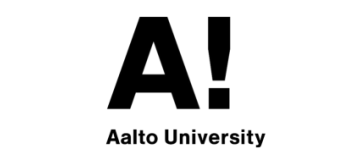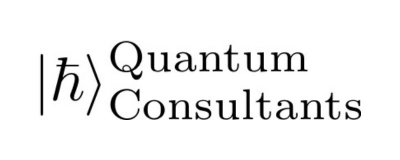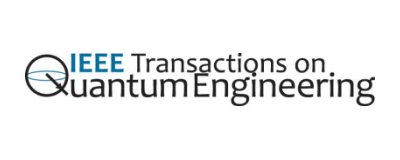About QRE
This is the fourth international workshop on the emerging field of Quantum Resource Estimation (QRE), benchmarking and performance analytics. The previous editions were QRE2021, QRE2020 and QRE2019.
We hope to encourage participation from those working in quantum algorithm optimization, error-correction, architecture design, quantum compilation, classical control and resource benchmarking.
The workshop is focused around developing techniques and tools that aid quantum software and algorithm design, informed by the realities of the hardware architectures. QRE shifts the perspective from complexity theoretic arguments to quantitative computer architecture arguments.
The goal is to reduce the physical resource1 costs for interesting quantum algorithms as quickly as possible. Small-scale, cloud-based NISQ machines sparked the interest of exact, realistic and non asymptotic resource estimations. It is still uncertain if any valuable quantum algorithm2 is possible without incorporating costly error-correction protocols that make estimation, benchmarking and optimization far more complex. QRE is the forum to share research on the near term feasibility of interesting2 quantum algorithms.
Organisers
Alexandru Paler, Aalto University, Espoo, Finland
Simon Devitt, University of Technology, Sydney, Australia
Daniel Herr, d-fine, Zurich, Switzerland

Technical Program Committee
John van de Wetering, Radboud University
Christophe Vuillot, Inria Nancy
Matthew Girling, University of Leeds
Arianne Meijer, University of Helsinki
Madhav Krishnan Vijayan, University of Technology, Sydney
William Pol, PsiQuantum
Prithviraj Prabhu, University of Southern California
Peter Rohde, University of Technology, Sydney
Aleks Kissinger, University of Oxford
Nikolas Breuckmann, UCL
Ben Reichardt, University of Southern California
Darcy Morgan, University of Technology Sydney
Francisco Garcia-Herrero, Universidad Complutense de Madrid
1Physical resources for executing a quantum algorithm can vary significantly. Resource costs are influenced by the resultant quantum circuits through their structure and designed precision. Additional overheads are introduced by the physical constraints of the quantum hardware. Quantum error correction is also resource hungry. Even the design and the performance of the classical control software that compiles algorithms and controls the quantum computer has a non-negligible impact on resources.
2Algorithm that outperforms classical supercomputers either in a theoretical or monetary sense.
Quantum computation has a growing number of promising application areas such as quantum chemistry, quantum optimisation and finance. However, the first industrially relevant and scalable quantum computer seems to be at least a decade away. Therefore, one of the most pressing questions is "How many physical qubits and how much time is necessary to execute a quantum algorithm on a selected hardware platform where the algorithmic output is more important than the fact a quantum computer was used to calculate it?"
By examining this question in depth we can motivate continued investment for quantum computing, further enable resource friendly quantum algorithm development and continue to push technological advances that will lead to a scalable quantum computing ecosystem.
The workshop will bring together researchers to discuss new methods and directions needed to develop, as soon as possible, the tools to:
- accurately analyze and benchmark complex quantum algorithms
- adapt error-correction techniques
- refine classical control and hardware microarchitectures
- enable scientifically and commercially relavant quantum applications
Research papers, tutorials, software and other demonstrations, and work-in-progress reports are within the scope of the workshop. Invited talks by leading international experts will complete the program. Contributions on all areas of quantum performance analytics are welcome:
- High level quantum circuit analytics.
- Fault-tolerant quantum circuit analytics.
- Clifford+T optimisation strategies.
- Resource efficient surface code implementations.
- Surface code decoders.
- Practical quantitative analysis of surface code alternatives.
- Noisy Intermediate Scale Quantum (NISQ) evaluation.
Initial submission for QRE2022 will consist of an extended abstract, limited to 2+epsilon-pages (including figures and references, please don't go nuts with the epsilon!). Contributions must be written in English and report on original, unpublished work, not submitted for publication elsewhere.
Upon acceptance, researchers are invited to submit full research papers to IEEE Transactions on Quantum Engineering.
Important Dates
Invited Speakers
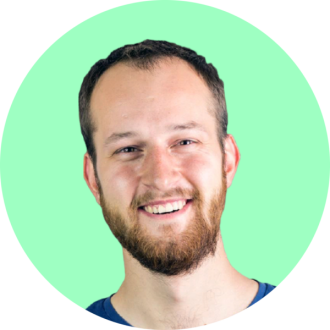
Michał Stęchły
Zapata Computing
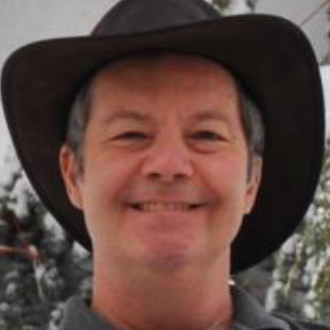
Erik DeBenedictis
IEEE Standards, P7131
Event Schedule - all times are EDT
Quantum Software
To attend the talks, please Register
Learnings from the DARPA Quantum Benchmarking Program
Michał Stęchły
I will talk about DARPA’s Quantum Benchmarking program that Zapata has been participating in and the insights about resource estimation that we’ve learned so far. I’ll talk about challenges associated with the whole pipeline, starting from the choice of a problem and algorithm, circuit compilation, hardware modelling and software development.
Concrete resource analysis for simulating the wave equation with a quantum computer
Thomas Häner, Stephen Jordan, Vadym Kliuchnikov, Guang Hao Low, Martin Roetteler, Bruno Schmitt and Mathias Soeken
Applying Grover's Algorithm to Hash Functions: A Software Perspective
Richard Preston
InQuIR: Intermediate Representation for Interconnected Quantum Computers
Shin Nishio and Ryo Wakizaka
Coffee Break
A Cost and Power Feasibility Analysis of Quantum Annealing for NextG Cellular Wireless Networks
Srikar Kasi, P.A. Warburton, John Kaewell and Kyle Jamieson
Quantum Resources Required to Block-Encode a Matrix of Classical Data
David Clader, Nikitas Stamatopoulos, Grant Salton, Alexander Dalzell, Mario Berta and William Zeng
Resource Estimation with Microsoft Quantum Development Kit
Mathias Soeken and Mariia Mykhailova
Lunch Break
QECC
To attend the talks, please Register
Flag Gadgets based on Classical Codes
Benjamin Anker and Milad Marvian
Quantum error correction with fractal topological codes
Arpit Dua, Tomas Jochym-O'Connor and Guanyu Zhu
Hardness of braided quantum circuit optimization in the surface code
Kunihiro Wasa, Shin Nishio, Koki Suetsugu, Michael Hanks, Ashley Stephens, Yu Yokoi and Kae Nemoto
Coffee Break
Benchmarking
To attend the talks, please Register
IEEE Benchmarking Standards and Classical Control Resources
Erik DeBenedictis
This talk is the merger of an invited talk and a contributed paper: (1) As chair of IEEE's quantum benchmarking standard P7131, I will describe IEEE's standards process, emphasizing IEEE's manner of establishing consensus across stakeholders. (2) I will also describe a project on low-dissipation classical control electronics using classical reversible logic. I will describe how to apply reversible logic to classical control, the simulated 100x dissipation reduction over cryo CMOS, and how to extend the approach to resource estimation. The connection to part (1) is that the resource estimation could become a benchmark standard at some point.
Stochastic Gradient Line Bayesian Optimization: Reducing Measurement Shots in Optimizing Parameterized Quantum Circuits
Shiro Tamiya, Hayata Yamasaki
Coffee Break
Spectral analysis for benchmarking of variational quantum algorithms and sparse recovery of cost functions
Enrico Fontana, Ivan Rungger, Ross Duncan and Cristina Cirstoiu
Efficient learning and benchmarking of readout noise cross-talk models in near-term quantum devices
Filip Maciejewski, Oskar Słowik, Jan Tuziemski and Michał Oszmaniec
Multi-programming Cross Platform Benchmarking for Quantum Computing Hardware
Siyuan Niu and Aida Todri-Sanial
An Implementation of the Quantum Verification of Matrix Products Algorithm
Elton Pinto, Jeffrey Young, Thomas Conte, Austin Adams and Eugene Dumitrescu
